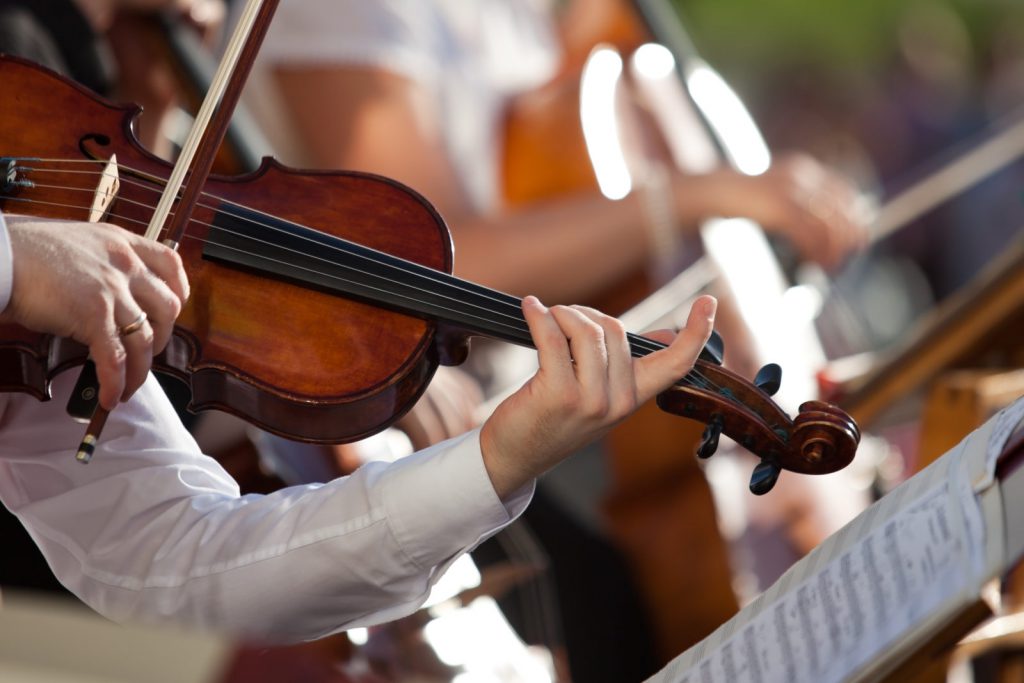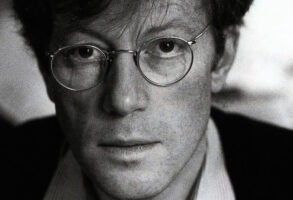
Published December 17, 2015
National Review - December 21, 2015 issue
The observation is often made that political conservatives do not have anything much to say about the arts, either believing, with the libertarians, that in this matter people should be free to do as they please, or else fearing, like the traditionalists, that a policy for the arts will always be captured by the Left and turned into an assault on our inherited values. Of course, there is truth in both those responses; but they are not the whole truth, and in my view one reason for the precarious state of the arts in our public culture today is that conservatives — who often come out near the top in fair elections — have failed to develop a clear cultural policy and to understand why, philosophically, such a policy matters.
There is a kind of conservatism that sees all political questions as reducible to economics, with the free market as the ruling principle and the expansion of consumer choice as the only coherent political program. This way of looking at things can be taken a lot farther than at first sight appears. There is an economic justification, after all, for the traditional two-parent family, which produces well-adjusted children who are able to fend for themselves and make a positive contribution to the economy, and who are unlikely to be lifelong dependents on the welfare state. But is that all, or even the most important thing, to be said in favor of the traditional family? Surely its nature as an arena of peace, well-being, and love is far more important, and if it were ever proved that single-parent families and child labor were economically more productive, this would not be a conclusive argument, or any argument at all, against the old arrangement. The traditional family has an intrinsic as well as an instrumental value, and that is the real reason so many conservatives defend it. They defend it because they have a vision of human fulfillment that goes well beyond the economic, to embrace all those values — moral, spiritual, and personal — that shape human beings as higher than the animals and especially worthy of our protection.
Still, let’s stay with economics for a moment. If a hard-nosed free-marketer asks you what the economic benefit of a symphony orchestra is, how would you answer him? Orchestras depend on donations — but that is okay, he will say, since donations are part of the market economy. But private donations are seldom, if ever, enough. Even if it receives no direct subsidy from the government, the symphony hall will be granted charitable privileges and planning exemptions that violate what Hayek once called the “harsh discipline of the market.” Then, we must look at the long-term economic benefit, and here again matters are not so simple. A city with a symphony hall attracts upwardly mobile new residents. It sets a standard in entertainment and leisure that others might try to live up to; it contributes to a flourishing downtown life of a kind that will attract the middle classes; and so on. Its long-term economic benefit probably vastly outweighs the short-term economic cost, even if no one is in a position to measure it.
But again, all that is irrelevant to the true question, which concerns intrinsic and not instrumental values. The real reason people are conservatives has little or nothing to do with economics, even if they are aware that economic prosperity is a good thing, and necessary for the support of other things that they value. The real reason people are conservatives is that they are attached to the things that they love, and want to preserve them from abuse and decay. They are attached to their family, their friends, their religion, and their immediate environment. They have made a lifelong distinction between the things that nourish and the things that threaten their security and peace of mind.
In my writings I have made a point of emphasizing this. Conservatism, for me, is the philosophy and the politics of attachment. Its starting point is a loved way of life, and the institutions and settlements that have grown from it. Standing against conservatism has been another state of mind altogether, which sometimes masks itself as love, but always love for the ideal, the nonexistent, the “yet to be,” in the cause of which we are invited to pull down and destroy the things that are. Radical politics is merciless toward the actual, especially when the actual enshrines the old way of life, the old institutions, and the old hierarchies that have arisen from our attachments.
Conservatives hold on to things not only because they are attached to them, but also because they do not see the sense in radical change, until someone has told them what it will lead to. You criticize the traditional family? Then tell us about the alternative, and please give us the details: Tell us how children grow up in this new arrangement, how they find security, love, and satisfaction, how they acquire the sense of responsibility, how they live with others, how they reproduce and how they die.
One of the things to which we are attached is our culture: not the everyday culture only, of which the family is, or has been, an integral part, but the high culture, in which the intellectual and artistic treasures of our civilization are enshrined. When you are truly attached to something, it is no longer of merely instrumental value for you. It is not a means but an end, which does not mean that it has no consequences — of course it has — but rather that you are interested in the thing itself, for its own sake, finding fulfilment and joy in it.
To find things to which you can be attached in this way is to find a meaning in life, and the real cause of the destructiveness of radical causes is, I believe, a certain lack of meaning in the lives of those who promote them.
At this point someone will respond that it is scarcely democratic to devote resources to conserving something that is a minority taste, or to teaching things that promote minority interests. As soon as you defend intrinsic values you are exposed to the charge of elitism, and conservatives shy away from attracting this charge, since they know that all the things they most value are unequally distributed, and that it is therefore probably best to shut up about them and just hope that they will be reproduced nevertheless.
This, in my view, is a mistake. We should make the case for the things we love, even if we think that people will misunderstand them. That is why people defend the U.S. Constitution, even though so few really understand the subtle thinking embodied in that document. People defend the Constitution because they love it, and the sight of someone defending what he loves has a softening effect on those who might otherwise oppose him. Opposition retreats a little in the face of sincere conviction.
So here is what I would say about classical music and the institutions that sustain it. For many people music is simply a matter of enjoyment, irrelevant to the greater things in life, and a matter of personal taste with which we cannot argue. John likes hard rock, Mary likes bluegrass, Fred likes hip-hop, Judith likes modern jazz, and so on. Once you enter the realm of classical music, however, you realize that such simple views no longer apply. You are in the presence of a highly learned, highly structured art form, in which human thought, feeling, and posture are explored in elaborate tonal arguments. In learning to play the music of Bach or Beethoven, for example, you are acutely aware that you are being put to the test by the music that you are playing. There is a right and a wrong way to proceed, and the right way involves learning to express, to control, to respond in mature and persuasive ways. You are undergoing an education in emotion, and the skills you learn do not remain confined to your fingers: They penetrate the whole body and brain, to become part of your world.
Moreover, this kind of education is inseparable from the art of judgment. In learning classical music, you are learning to discriminate, to recognize the authentic examples, to distinguish real from fake emotion, and to glimpse both the depths of suffering and the heights of joy of which human beings are capable. Not everyone can excel in this form of education, just as not everyone can be a mathematician, a motor mechanic, or a basketball star.
But the existence of people who are real practitioners of classical music, who can perpetuate this precious repository of emotional knowledge, is just as important to the rest of us as it is to them. They set a standard of dedication and refinement. They create around themselves an aura of seriousness and peace, and the art that they learn is one on which we all depend when it comes to expressing our most solemn and committed emotions.
Also, it is probably a prejudice to think that it is only a minority who are capable of learning and appreciating classical music. Not only are the harmonic achievements of classical music fundamental to hymns, folk songs, musicals, and jazz, but the four-part choir, which we owe to Renaissance polyphony, remains a staple of musical-institution building all across American society. Recently I was asked to give the commencement speech at a charter school in Arizona. The leaving class of 50 students assembled in their gowns to sing their farewell to the school — children of different abilities and backgrounds, who nevertheless all joined in the song, which was a difficult four-part hymn of praise to friendship in the American revivalist tradition.
To my way of thinking, there cannot be a coherent conservatism, either in everyday life or in politics, that does not take high culture seriously. It really matters to the future of our societies that classical music should survive, not as a museum exhibit but as a live tradition of performance and enjoyment, radiating its grace and graciousness across our communities, and providing us all, whether as performers or as listeners, with a sense of the intrinsic value of being here, now, and among our fellows. From that primary experience of togetherness, of which music is not the only but surely the most exhilarating instance, countless other benefits flow, in the form of solidarity, mutual support and responsibility, and the growth of real communities.
Conservatives therefore ought to pay more attention than they do to the survival of musical skills, and to the place of music in the school and university curriculum. They ought to see that the symphony hall, the musical stage, and the instrumental ensemble are all institutions that they should promote, not as optional extras but as the very essence of what they value most, which is human life itself.
– Mr. Scruton, an English philosopher, is a distinguished senior fellow of the Future Symphony Institute and a senior fellow at the Ethics and Public Policy Center.







